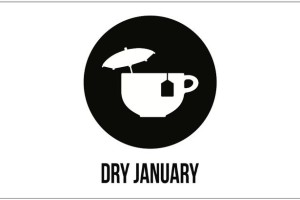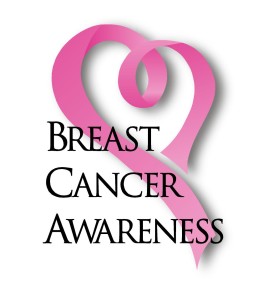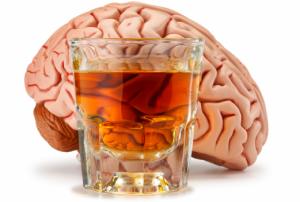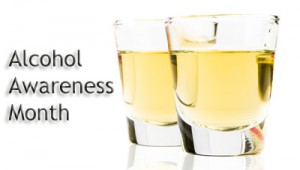 2016 is officially here, and we are almost two weeks into our New Year’s resolutions. For many, this means participating in a recent trend called Dry January. Of course people pledging to give up alcohol in the New Year is nothing new (ExecuCare Founder Mike Sanders made this decision in January 2005 and has enjoyed a successful recovery since!). But Dry January only focuses on giving up alcohol for one month, so what does this mean for you or your clients?
2016 is officially here, and we are almost two weeks into our New Year’s resolutions. For many, this means participating in a recent trend called Dry January. Of course people pledging to give up alcohol in the New Year is nothing new (ExecuCare Founder Mike Sanders made this decision in January 2005 and has enjoyed a successful recovery since!). But Dry January only focuses on giving up alcohol for one month, so what does this mean for you or your clients?
 Simply put a high-functioning alcoholic is someone who still manages a career and/or cares for a family while continuing to abuse alcohol. Responsible, productive, high-achieving, powerful: these don’t seem like terms that describe someone with a drinking problem, but they can. And it’s because a high-functioning alcoholic does not fit the stereotype of a drunk that your problem can go unnoticed by those around you. And as a high-functioning alcoholic, you’re probably in denial about your drinking being problematic. After all, you’re still “fulfilling your duties.” Read more →
Simply put a high-functioning alcoholic is someone who still manages a career and/or cares for a family while continuing to abuse alcohol. Responsible, productive, high-achieving, powerful: these don’t seem like terms that describe someone with a drinking problem, but they can. And it’s because a high-functioning alcoholic does not fit the stereotype of a drunk that your problem can go unnoticed by those around you. And as a high-functioning alcoholic, you’re probably in denial about your drinking being problematic. After all, you’re still “fulfilling your duties.” Read more →
 The risk of breast cancer and drinking? October is Breast Cancer Awareness Month and every year we like to remind our readers that there is a strong correlation between drinking and increasing one’s risk of breast cancer. Hundreds of thousands of women are diagnosed with breast cancer each year and the numbers are increasing each year. It’s important for women to know that there are behaviors that can reduce her risk as well as others that increase her risk, one being drinking. Read more →
The risk of breast cancer and drinking? October is Breast Cancer Awareness Month and every year we like to remind our readers that there is a strong correlation between drinking and increasing one’s risk of breast cancer. Hundreds of thousands of women are diagnosed with breast cancer each year and the numbers are increasing each year. It’s important for women to know that there are behaviors that can reduce her risk as well as others that increase her risk, one being drinking. Read more →
 Are certain health problems caused by drinking too much alcohol? Despite a number of recent studies that promote alcohol as “healthy,” the line between health and harm is easily crossed. Those who drink more than 2-3 glasses of alcohol a day could suffer from some pretty serious health problems. Read more →
Are certain health problems caused by drinking too much alcohol? Despite a number of recent studies that promote alcohol as “healthy,” the line between health and harm is easily crossed. Those who drink more than 2-3 glasses of alcohol a day could suffer from some pretty serious health problems. Read more →
 A common question asked is, “what are alcohol withdrawal symptoms?” Some people want to know in case what they are feeling when they go without drinking is an indication that they have a substance dependence problem. And others want to know because they are planning to enter a treatment program and want to what it will be like.
A common question asked is, “what are alcohol withdrawal symptoms?” Some people want to know in case what they are feeling when they go without drinking is an indication that they have a substance dependence problem. And others want to know because they are planning to enter a treatment program and want to what it will be like.
Some alcohol withdrawal symptoms for those who have become alcohol dependent and try to stop or reduce their drinking include:
 Alcohol Awareness Month in April was founded by the National Council on Alcoholism and Drug Dependence, Inc. (NCADD) in 1987. Its aim is to promote public awareness about alcoholism, educate, and help reduce the stigma surrounding alcoholism that often acts as a barrier for people and families needing help.
Alcohol Awareness Month in April was founded by the National Council on Alcoholism and Drug Dependence, Inc. (NCADD) in 1987. Its aim is to promote public awareness about alcoholism, educate, and help reduce the stigma surrounding alcoholism that often acts as a barrier for people and families needing help.
The theme for this year is “Help for Today, Hope for Tomorrow,” which speaks to all those who are effected by alcoholism including our youth, families and communities. Read more →


